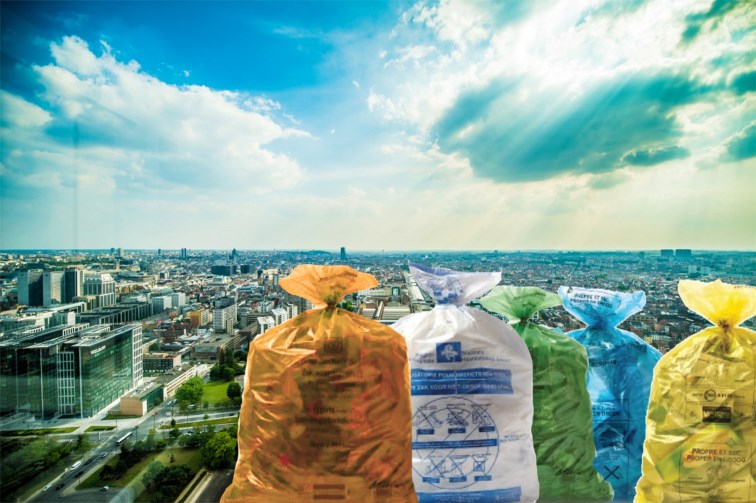A project to use household food waste to create bio-methane energy at a centre in Brussels has been quashed by the Brussels region’s secretary of state for public waste management, Fadila Laanan (PS).
The reaction comes following the completion of a report on the economic, social and ecological implications of such a centre. According to Laanan, the report shows that the conditions for an investment by the region estimated at 35 million euros have not been met.
Since 2017, residents of the Brussels region have been able to sort household food waste in orange bags, while some communes also provide orange plastic bins which help protect against smells inside, and forays by hungry animals and birds when placed outside for collection.
When the bags are collected by the waste management agency Bruxelles Propreté, the food waste has to be transported to Ypres in West Flanders, where there is a facility to compost the material for the production of bio-fuel.
The plan to build such a centre in Brussels was first proposed as a public-private partnership, and rejected by the Brussels government in 2016, before household collection of compostable material had even begun.
The project still has the support of other parties, including Ecolo, cdH and Défi. The details of the commissioner report have not been revealed. But business daily L’Echo reports that Laanan’s concerns include the problem of finding a location for the site, the probability of public complaints, as well as a fear that the waste collected – estimated at 8,000 tonnes of household food waste and 17,000 tonnes of other green waste such as garden cuttings – would not be sufficient to keep the centre operating at full capacity.
However, the paper reports, a feasibility study carried out by the Free University of Brussels (ULB) came up with 16 possible sites for the centre where complaints from the public over noise and smell would be minimal. And the quantities of bio-waste collected are sure to increase greatly when sorting of such waste becomes obligatory in the EU at the end of 2023, by which time the procedure for the construction of a centre might not even be complete.
According to a note by the region’s environment minister, Céline Fremault (cdH), the creation of a centre for the treatment of bio-waste in Brussels would allow the region to keep control of its own operation, would avoid the costly transport of waste to other regions, and would ensure the region had a reliable source of quality compost for its own use.
The question of a project which is supported by potential coalition partners Défi and Ecolo but opposed by the major partner PS could form a sticking point in discussions on the creation of a new regional government, L’Echo concludes.
Alan Hope
The Brussels Times

